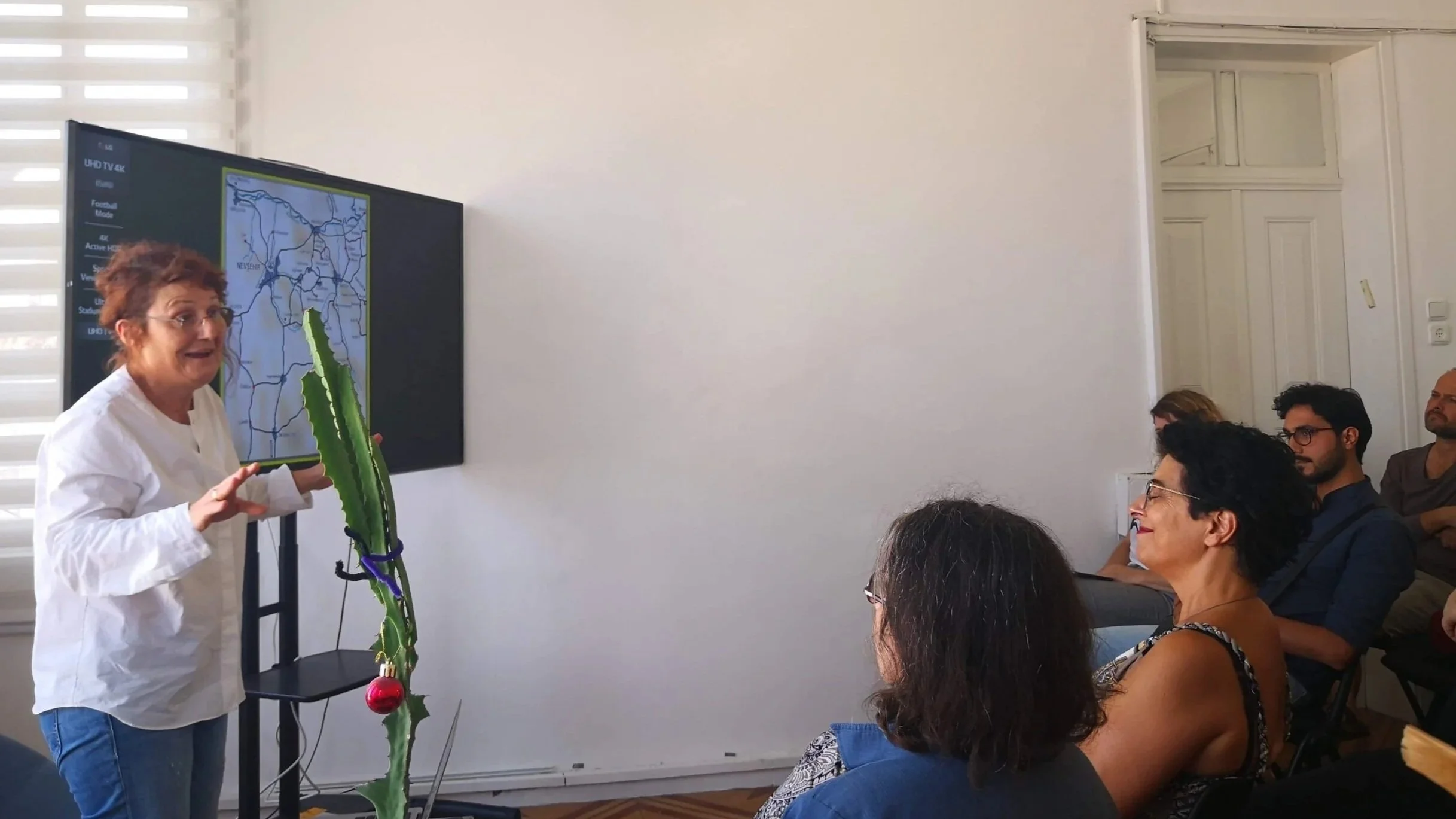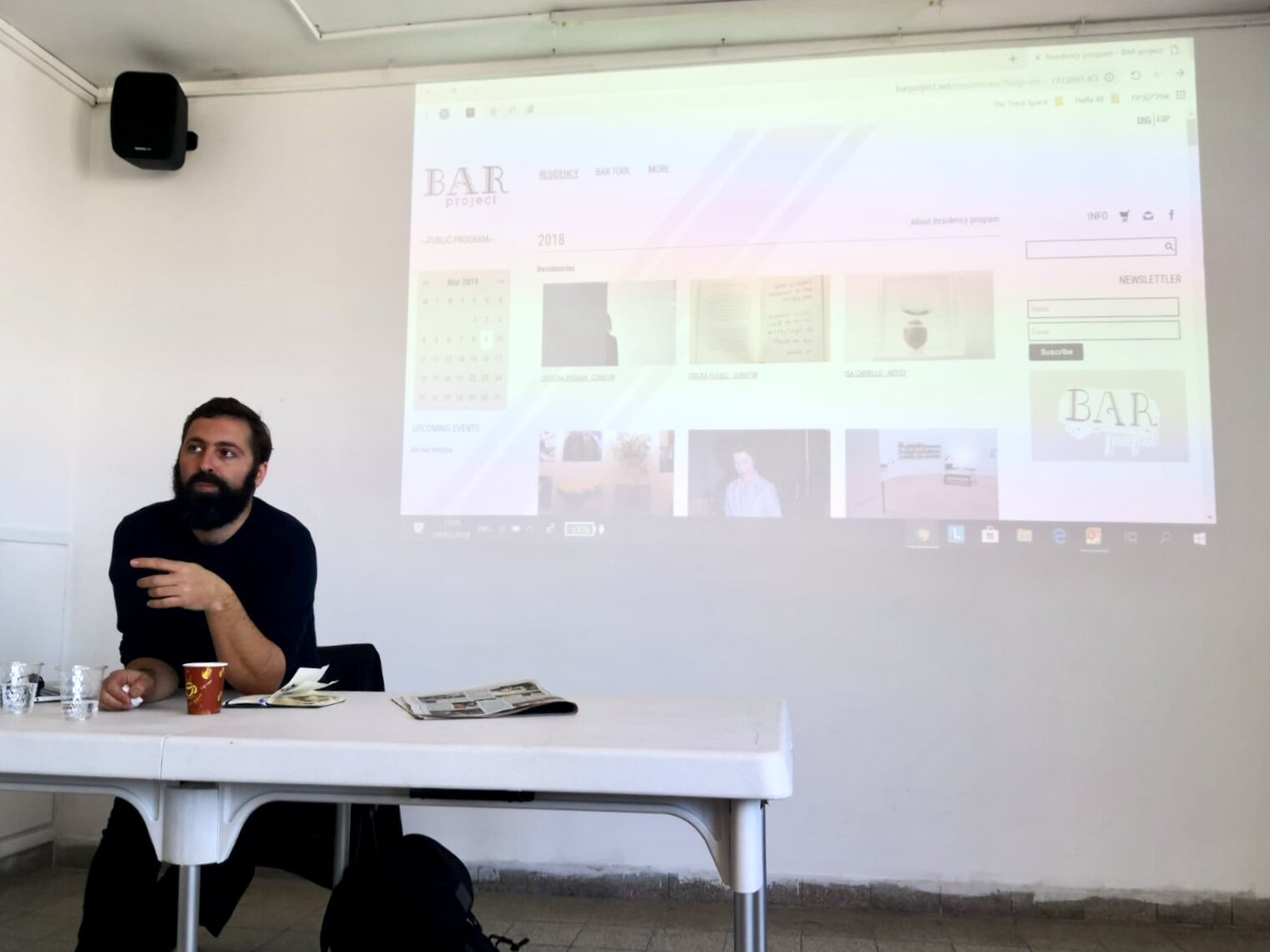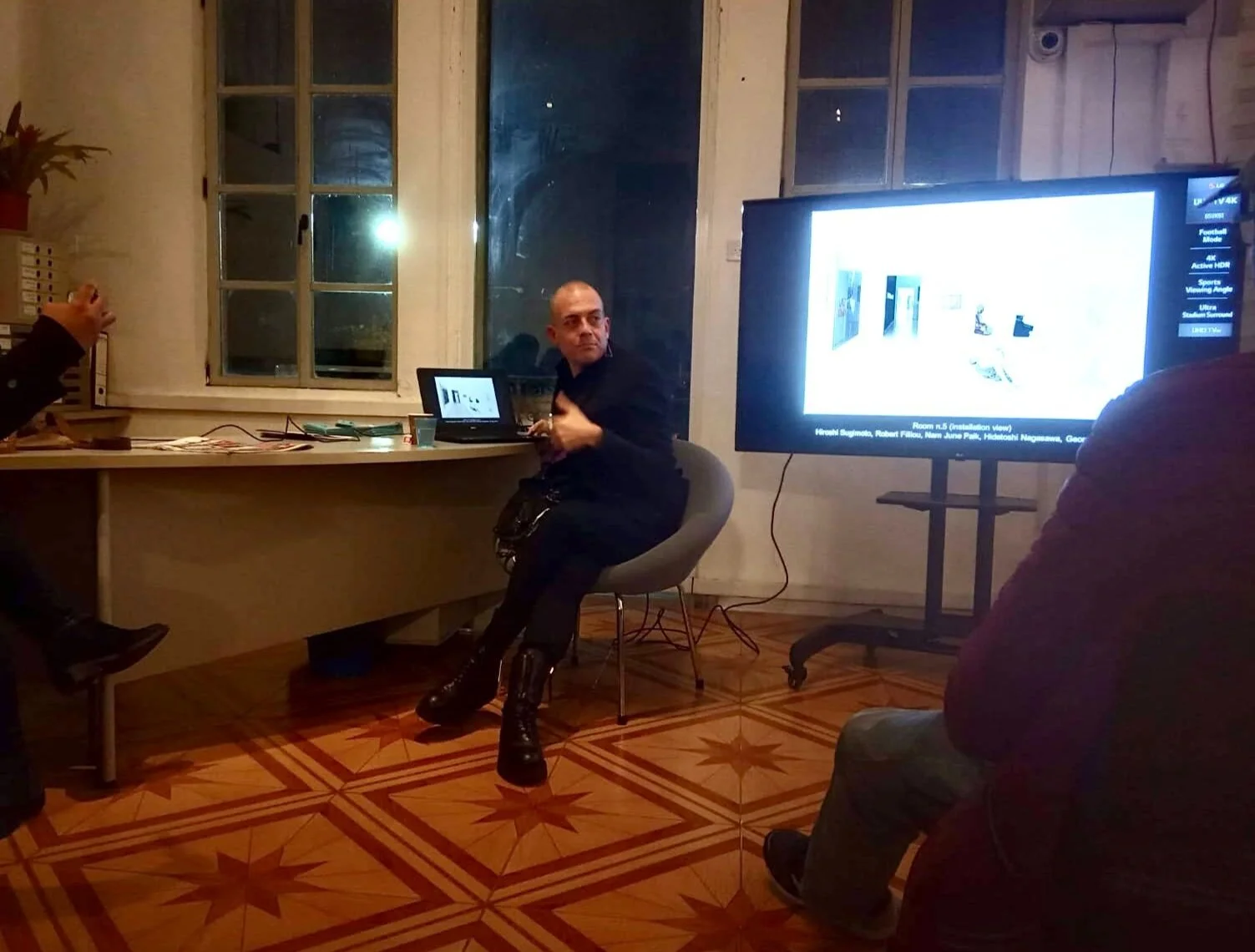SeaPort was established in 2018 as a residency program dedicated to curators engaged with the cultural geographies of the Mediterranean basin. Conceived as an educational platform, it is grounded in principles of hospitality, dialogue, and regional collaboration. Today, SeaPort operates from Athens as an Art Center for Curatorial Research, offering extended programming open to the public while maintaining the curatorial residency as a core part of its activities. By situating itself within the broader framework of transnational artistic exchange, SeaPort positions the Mediterranean not only as a geographic locus but also as a critical space for intellectual and cultural inquiry.
The primary aim of our programming is to cultivate lasting relationships with cultural practitioners from neighboring art scenes. These connections foster reciprocal forms of knowledge and enable meaningful exchange across diverse traditions and contexts. At the same time, the program places strong emphasis on questions of locality and regionalism, as well as the situated practices that arise from them. Through this approach, SeaPort highlights the importance of understanding artistic and curatorial work as deeply embedded within broader historical, social, and political conditions.
SeaPort Program for Curators is designed in direct dialogue with the invited curator’s research and professional focus. Each program typically integrates studio visits, professional encounters, and public lectures, thereby offering a structured yet flexible framework for engagement. This tailored model allows participants to immerse themselves in both the artistic community and the lived realities of the region, generating opportunities for critical reflection and sustained learning.
At its foundation, SeaPort operates on the premise that locality and regionalism are not only geographic categories but also pedagogical tools. The center fosters encounters with artists, curators, and students from across the Mediterranean, cultivating an environment of shared inquiry and exchange.
SeaPort Athens serves as a dynamic platform for cultural programming - hosting round tables, lectures, performances, screenings, and events curated by our guests and alumni. Additionally, the center hosts The Rock Upon Which the Light Walks meals, intimate gatherings that celebrate Mediterranean, Palestinian, and North African culinary traditions while fostering dialogue, reflection, and connection among participants.
SeaPort Art Center for Curatorial Research in Athens is supported entirely through private donations and upholds a philosophy of openness, without predetermined expectations of production. Our programming provides time, space, and context for research, reflection, and dialogue, affirming the value of intellectual generosity and the transformative potential of curatorial practice.
We warmly invite you to learn more about our programming, explore upcoming activities, and contact the SeaPort team to discuss possibilities for involvement.
Dor Guez Munayer | Director
Dor Guez Munayer, born in Jerusalem to a Palestinian Greek Orthodox mother and a Jewish North African father, explores how memory, displacement, and identity shape the stories we inherit and the histories we tell.






